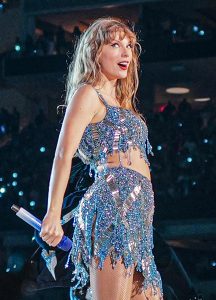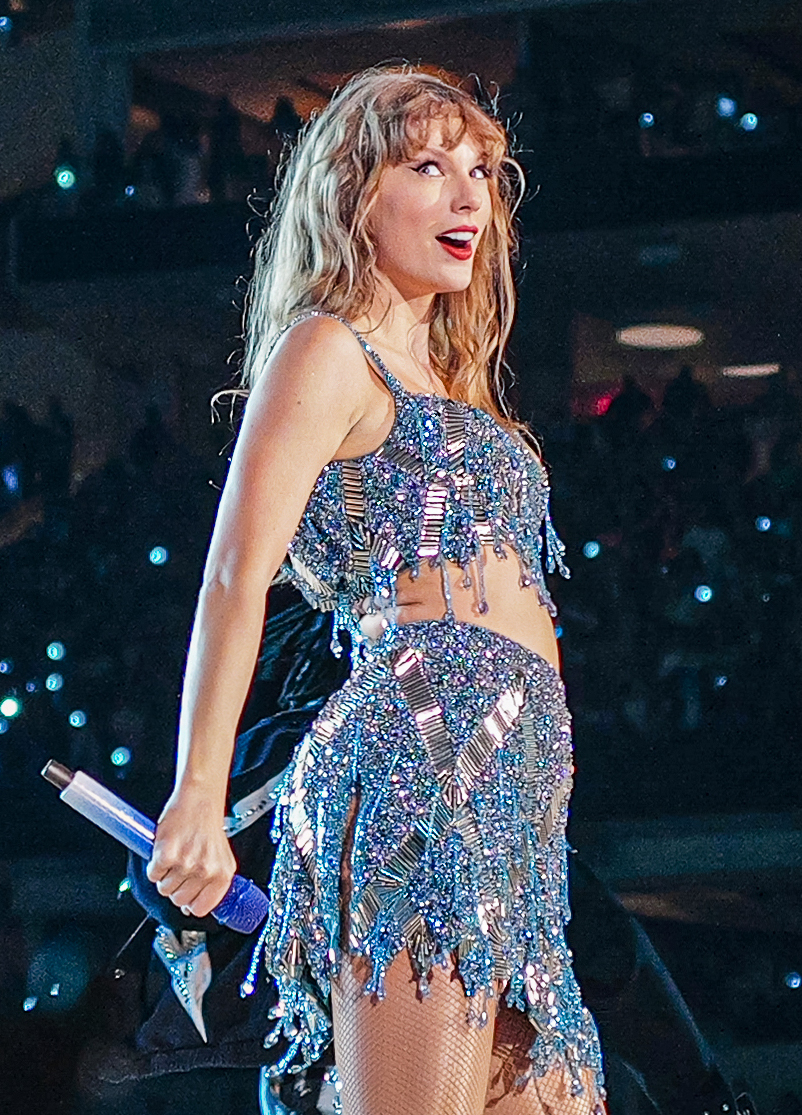On Aug. 7, Taylor Swift canceled her long-awaited Vienna stop on her high-demand Eras Tour due to confirmation of a planned terrorist attack. Devastated, her devoted fans and the city of Vienna banded together, played and sang along to every word of the setlist for the tour in the city streets. Coldplay even covered “Love Story” at their concert on Aug. 21 to show solidarity for those affected by the cancellations.
While Swift prioritized the safety of her fans, team, and herself, she was berated by fans worldwide for neglecting to speak out about the cancellations. However, after the conclusion of the London shows and the European leg of her world tour, she released a social media statement regarding Vienna and her silence up to that point. Swift described the cancellations as “devastating,” but was thankful that “we were grieving concerts and not lives.” She also stated: “I am not going to speak about something publicly if I think doing so might provoke those who would want to harm the fans who come to my shows.”
 The confirmed attack came only a week after the death of three young girls, two of which were six years old and another seven years old, who were victims of a stabbing at a Swift-themed event in the United Kingdom. Swift is not the first celebrity whose fans and events have been targets of violence. Ariana Grande’s Manchester concert in 2017 was the target of a bombing that ended in 22 deaths. A 2017 country music festival in Las Vegas ended in 59 deaths due to a mass shooting. Chappell Roan, a singer who shot to fame the past year, stated that “I feel the most unsafe I have ever felt in my life”, and the list goes on. The question remains, why are celebrities constantly the targets of attacks like this and why do we as fans feel like we have a right to force them to comment on traumatic events?
The confirmed attack came only a week after the death of three young girls, two of which were six years old and another seven years old, who were victims of a stabbing at a Swift-themed event in the United Kingdom. Swift is not the first celebrity whose fans and events have been targets of violence. Ariana Grande’s Manchester concert in 2017 was the target of a bombing that ended in 22 deaths. A 2017 country music festival in Las Vegas ended in 59 deaths due to a mass shooting. Chappell Roan, a singer who shot to fame the past year, stated that “I feel the most unsafe I have ever felt in my life”, and the list goes on. The question remains, why are celebrities constantly the targets of attacks like this and why do we as fans feel like we have a right to force them to comment on traumatic events?
For years, fans have pushed celebrities to share their personal lives and even invade their personal lives by showing up at their front door, breaking into their homes, or even just expecting a photo when a celebrity is out with friends or family. Fans feel like they have a right to know information about their favorite celebrities that they don’t even feel comfortable talking about with their closest friends. Celebrities are so over-saturated in the media, making fans feel like they are friends with their favorite artists, actors and athletes. The rise of parasocial relationships has led to greater intrusion into celebrity lives from fans.
Parasocial relationships are “one-sided relationships, where one person extends emotional energy, interest and time, and the other party, the persona, is completely unaware of the other’s existence,” according to the National Register of Health Service Psychologists. It is due to parasocial relationships that situations like the one with Swift are seen. Fans felt close to Swift on a personal level, giving them an alleged right to push her to speak out on an issue, even criticizing her to the point that she had to address these fans at the same time as addressing what was an extremely upsetting and traumatic experience for her.
The issue is that fans in parasocial relationships only think about what they have a right to know and not about the emotional well-being of the celebrity on the other side. For example, Swift addressed her critics with a harsh tone in her social media posts, seeming frustrated that she had to explain her silence in any manner. It is easy for fans to get lost in the fact that celebrities like Swift have a career in pleasing the fans, making it even easier for fans to forget that they are all human beings.
The Vienna cancellations first and foremost shed light on the harsh realities of fame in today’s society when it comes to safety. They also shed light on the microscope that celebrities are under in the age of social media and parasocial relationships. Ultimately, an artist’s job is to entertain fans while also keeping them safe, and every artist does the best they can to make sure both of these things are true. However, fans feel the need to weigh in on how artists go about this, which is the greater issue at play here. Celebrities are people too, an important fact that fan culture needs to be far more cognizant of.

